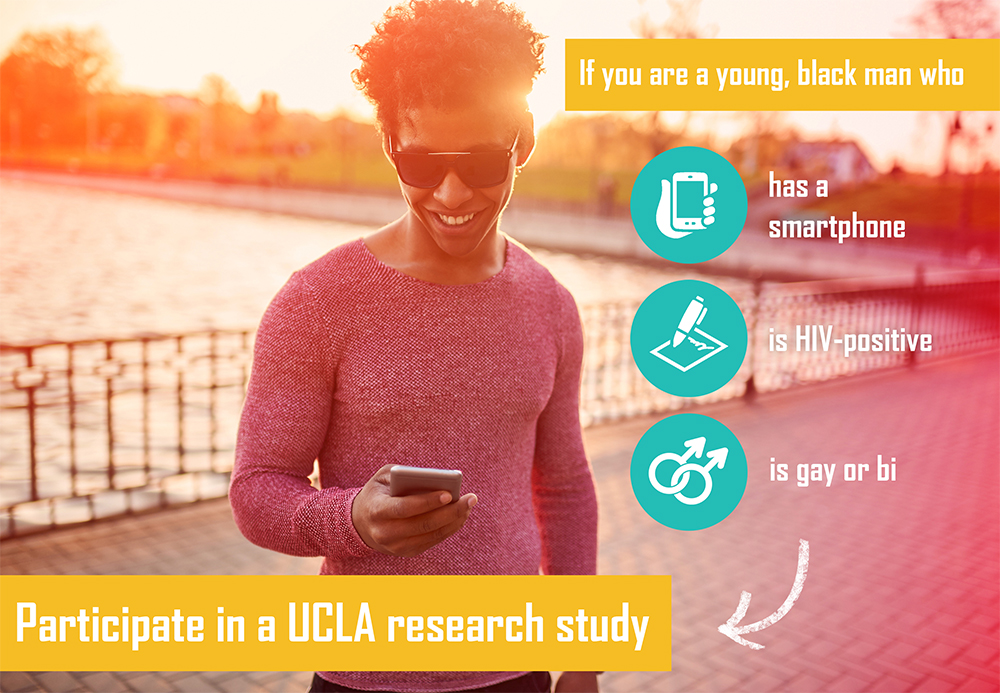Stop HIV Stigma
LINX LA is a technology platform dedicated to addressing HIV stigma through building a safe, private social support network for people living with HIV.
Issues
- One of the major challenges of reaching Black men who have sex with men (BMSM) for social services and health interventions is connecting these men with community-based or neighborhood-specific services.
- Some research suggests that disparities in HIV exist because YMSM are less likely to identify as gay or bisexual or less likely to participate in predominantly white gay settings compared to their White and Latino peers. Therefore, they are less likely to occupy venues where HIV interventions have traditionally targeted gay social spaces (e.g., bars and clubs) which leads some BMSM to remain hidden within their neighborhoods.
- Among people living with HIV/AIDS in Los Angeles County, BMSM also face specific challenges getting into HIV care and staying in care. This indicates that regardless of serostatus, locating BMSM to deliver HIV interventions that will be culturally congruent and effective is central to addressing HIV disparities.
- Dr. Holloway’s preliminary research found that MSM in Los Angeles County travel to predominantly white gay neighborhoods on nights that are specifically specified for men of color.
- Meeting the challenge of reaching BMSM requires innovative outreach to both Black neighborhoods and predominantly white gay neighborhoods, using methods that enable maximum privacy.
- Mobile apps permit individuals access to HIV interventions through their personal smartphones, ensuring greater privacy.
Study Purpose
The focus of LINX LA Study is on linkage to appropriate HIV, social and legal services among BMSM ages 18 and over and residing in Los Angeles County. Participants in this study play an integral role in adapting a mobile application HIV intervention for BMSM and facilitate linkage to appropriate and relevant HIV services.
Peer-Reviewed Publications
- The associations between HIV stigma and mental health symptoms, life satisfaction, and quality of life among Black sexual minority men with HIV, Quality of Life Research, January 2023.
- Structural Syndemics and antiretroviral medication adherence among Black sexual minority men living with HIV, JAIDS Journal of Acquired Immune Deficiency Syndromes, December 2021.
- A Community-Developed, Web-Based Mobile App Intervention Addressing Social Work and Legal Needs of Black Sexual Minority Men Living with HIV: Protocol for a Randomized Comparison Trial, JMIR Research Protocols, 2021.
Presentations
- The Associations Between HIV Stigma and Health-Related Quality of Life and Patient-Reported Outcomes Among Black Sexual Minority Men Living with HIV, Presentation at CHIPTS HIV Next Generation 2022 Conference, Los Angeles, CA, January 2022.
- The impact of internalized homophobia and social well-being among black sexual minority men living with HIV in the United States: the mediating roles of LGBT community connectedness and racial/sexual self-identity. Poster presentation at AIDS 2022, Montreal, Canada, July 28 – August 03, 2022.
- Suicide attempt and suicide ideation among black sexual minority men living with HIV. Oral presentation at SSWR 2023, Phoenix, AZ, January 11 – 16, 2023.
- Experiences of Racism, Homophobia, and Stigma in Healthcare Settings and Medication Adherence among Black Sexual Minority Men Living with HIV in Los Angeles County, California, Poster presentation at AIDS 2020.
- Structural Determinants of Health and HIV Treatment Engagement among Black Sexual Minority Men in Los Angeles County, California, Virtual presentation at American Public Health Association Annual Meeting, 2020.
- LINX LA: Developing a Web-Based Mobile App to Improve Treatment Outcomes among HIV-Positive Sexual Minority-Identified Young Black Men, Poster presentation at the XXII International AIDS Conference, 2018.
- LINX LA: Developing a Web-Based Mobile App to Improve Treatment Outcomes among HIV-Positive Black YMSM, Oral presentation at the National LGBTQ Health Conference, 2017.
Funder
California HIV/AIDS Research Program

ABOUT THE PROJECT
Researchers: Ian W. Holloway, Ayako Miyashita Ochoa
Location: Los Angeles County
Sample: 125 African American men who have sex with men living with HIV/AIDS in Los Angeles County
Timeline: 2018 to present

